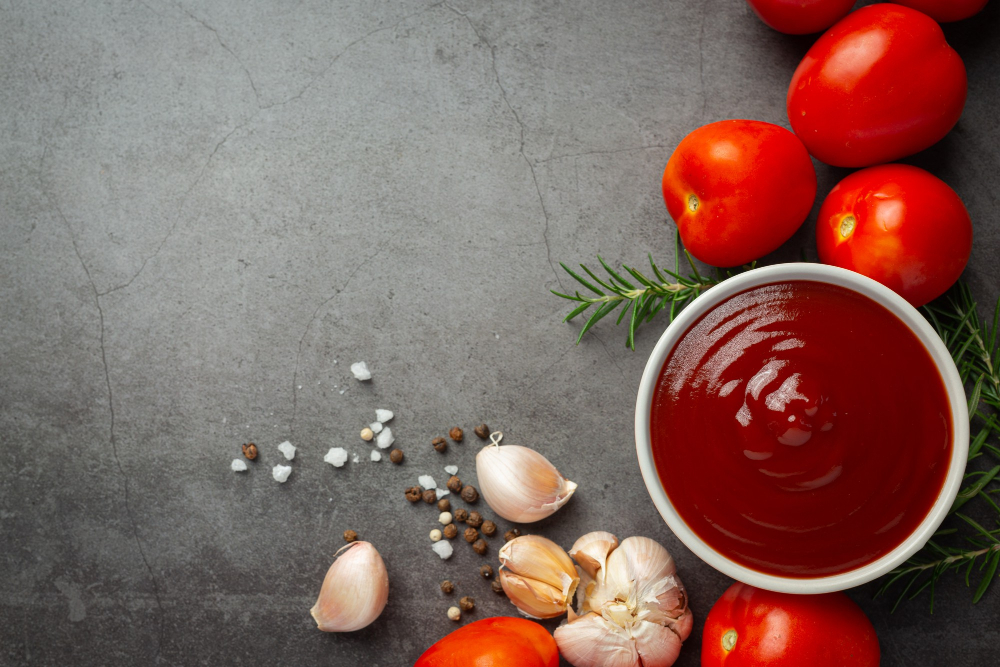What can I use instead of lemon or lime juice in marinade?
When it comes to marinating your meats or vegetables, the tangy and acidic taste of lemon or lime juice is often a key ingredient. However, there may be times when you don’t have these citrus fruits on hand or simply want to experiment with different flavors. Fortunately, there are several alternatives you can use in place of lemon or lime juice that will still add depth and complexity to your marinades. In this article, we will explore some excellent substitutes for lemon or lime juice that you can try in your next marinade.
Citrus Vinegars
If you’re looking for a similar tang and acidity, citrus vinegars can be an excellent substitute for lemon or lime juice in marinades. These vinegars are made by infusing citrus fruit peels and pulp into vinegar, resulting in a flavorful and zesty liquid. Options such as orange vinegar or grapefruit vinegar can provide a bright and refreshing twist to your marinades. Simply replace the amount of lemon or lime juice called for in a recipe with an equal amount of citrus vinegar.
Vinegars
Another alternative to lemon or lime juice is using other types of vinegar. Vinegars like apple cider vinegar, white vinegar, or balsamic vinegar can all add acidity and flavor to your marinades. Each vinegar has its distinct taste profile, so feel free to experiment and choose the one that best complements your dish. Keep in mind that some vinegars, like balsamic vinegar, have a sweeter taste, so adjust the other ingredients in your marinade accordingly to balance the flavors.
Yogurt or Buttermilk
For those who prefer a creamier marinade, yogurt or buttermilk can be excellent substitutes for lemon or lime juice. These dairy products not only add a tangy flavor but also help tenderize the meat. Greek yogurt or plain yogurt works well for marinades, while buttermilk is a popular choice for marinating chicken. The enzymes in yogurt or buttermilk help break down proteins, resulting in moist and flavorful meat.
Citrus Zests
If you’re looking to add a burst of citrus flavor without the acidity of lemon or lime juice, consider using citrus zests in your marinades. The outer colored part of citrus peels contains aromatic oils that can infuse your marinade with delightful flavors. Simply grate the zests of oranges, lemons, or grapefruits directly into your marinade to add a bright, citrusy element. Remember to adjust the other ingredients in your marinade to maintain the balance of flavors.
Other Acidic Fruits
While lemon and lime are commonly used, there are many other acidic fruits that can be used as substitutes in marinades. Some options include:
- Oranges
- Pineapples
- Mangos
- Grapes
These fruits can provide a slightly different flavor profile compared to lemon or lime but can still offer a refreshing and tangy taste to your marinades. Experiment with different combinations to discover unique flavor combinations that suit your preferences.
In conclusion, when you find yourself without lemon or lime juice for your marinades, there are plenty of alternatives to choose from. Whether it’s using citrus vinegars, other types of vinegar, yogurt, buttermilk, citrus zests, or other acidic fruits, you can create delicious and flavorful marinades that will elevate your dishes. So don’t be afraid to get creative and try something new – your taste buds will thank you!
“The acidity and tanginess of lemon or lime juice can be easily replicated with a wide range of substitutes, allowing you to explore new flavors in your marinades.”
Is Coca-Cola a good marinade?
Marinades are an essential ingredient in cooking, adding flavor and tenderness to meats and vegetables. While many traditional marinades use a combination of herbs, spices, and acidic liquids like vinegar or citrus juice, there is a surprising contender that has gained popularity in recent years: Coca-Cola.
Can Coca-Cola be used as a marinade?
Yes, Coca-Cola can indeed be used as a marinade for certain dishes. Its unique blend of flavors, including the carbonation and sweetness, can help to tenderize meat and infuse it with a delightful caramelized taste. However, it is important to note that Coca-Cola works best as a marinade for specific types of meats, such as pork or chicken.
The Science behind Coca-Cola Marinades
One of the main reasons Coca-Cola works well as a marinade is due to its acidic nature. The phosphoric acid present in Coca-Cola helps to break down proteins in the meat, resulting in tenderizing effects. Additionally, the carbonation in the soda helps to further tenderize the meat by increasing moisture retention and enhancing flavor absorption.
Benefits of Using Coca-Cola as a Marinade:
- Enhanced flavor: Coca-Cola’s distinct blend of flavors adds a unique sweetness and depth to the marinade.
- Tenderizes meat: The acidity and carbonation in Coca-Cola help to break down tough proteins, resulting in more tender meat.
- Caramelization: The natural sugars in Coca-Cola create a beautiful caramelized crust when grilled or cooked at high temperatures.
“Using Coca-Cola as a marinade gives the dish a delightful combination of sweet, tangy, and savory flavors that are hard to resist.”
Recipes using Coca-Cola as a marinade
Here are a few delicious recipes that utilize Coca-Cola as a marinade:
| Recipe | Main Ingredient |
|---|---|
| Coca-Cola BBQ Ribs | Pork ribs |
| Coca-Cola Chicken Wings | Chicken wings |
| Coca-Cola Glazed Ham | Ham |
While using Coca-Cola as a marinade can provide fantastic results, it’s important to use it in moderation and consider the other ingredients in your recipe. Additionally, it’s always a good idea to experiment with different marinades to find the perfect flavor combination for your taste buds.
In conclusion, Coca-Cola can be a good marinade option for certain dishes, especially pork and chicken. Its unique blend of flavors and tenderizing effects make it a popular choice among cooks. So, why not give it a try and add a touch of Coca-Cola magic to your next culinary adventure?
Can I use BBQ sauce as a marinade?
Barbecue sauce is a versatile condiment that adds a delicious flavor to grilled meats and other dishes. While it is commonly used as a glaze or dipping sauce, many people wonder if it can be used as a marinade as well. The short answer is yes!
Using BBQ sauce as a marinade can enhance the flavor of your meats and add a smoky and tangy taste. However, there are a few things to keep in mind when using BBQ sauce in this way.
Marinating with BBQ sauce:
If you decide to use BBQ sauce as a marinade, here are a few tips to ensure the best results:
- Choose the right meat: BBQ sauce works well with pork, beef, chicken, and even some seafood. Different types of BBQ sauces pair better with specific meats, so choose one that complements the flavors.
- Marinating time: Unlike traditional marinades, BBQ sauce doesn’t need to marinate for hours. It’s best to marinate your meat for at least 30 minutes to allow the flavors to penetrate and tenderize the meat.
- Don’t cross-contaminate: When using BBQ sauce as a marinade, make sure to discard any leftover sauce that comes into contact with raw meat to avoid cross-contamination.
- Grill or roast: Once your meat has marinated, you can grill or roast it as desired. The sugars in the BBQ sauce can caramelize quickly, so keep an eye on the heat to prevent burning.
Remember that BBQ sauce contains sugar, which can cause the meat to burn if exposed to high heat for too long. It’s important to monitor the cooking process closely to avoid charring.
Tip: If you’re concerned about the sugar content, you can opt for a homemade BBQ sauce with lower sugar or use a marinade that incorporates BBQ flavors without the added sugars.
In conclusion, using BBQ sauce as a marinade can add a delightful taste to your meats. Just make sure to choose the right meat, marinate for an appropriate amount of time, and be mindful of the sugar content during the cooking process.


